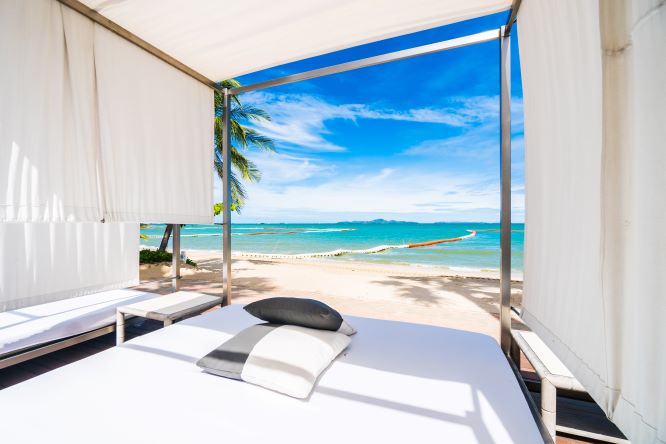Have you noticed fewer Vacasa Hawaii vacation rentals popping up in your travel searches lately? If so, you’re not alone. Vacasa, once a dominant player in Hawaii’s vacation rental market, has been experiencing a sharp decline in its operations across the islands. Once a go-to platform for vacationers looking for reliable and luxurious rental properties, Vacasa now faces mounting challenges that have had significant impacts on homeowners, renters, and the broader vacation rental market in Hawaii.
This post takes a deep dive into the Vacasa Hawaii vacation rentals decline, exploring the reasons behind their struggles, the ripple effects on stakeholders, and what the future holds for Hawaii’s vacation rental landscape.
1. Background on Vacasa and Hawaii Vacation Rentals
What is Vacasa?
Vacasa is a vacation rental management company that has grown into one of the largest players in the short-term rental market. With services aimed at simplifying property management for homeowners and offering a seamless booking experience for travelers, Vacasa initially thrived in popular tourist destinations like Hawaii.
Vacasa’s Role in Hawaii’s Vacation Rental Market
Hawaii’s tourism industry is a cornerstone of its economy, and vacation rentals have played a crucial role in accommodating the millions of visitors the islands attract annually. At the height of its success, Vacasa managed thousands of properties across Hawaii, providing travelers with a wide range of options, from beachside condos to luxury estates.
Vacasa’s early success was driven by its ability to scale rapidly, offering professional property management services to homeowners and ensuring consistent, high-quality stays for guests. However, as the company grew, cracks began to emerge in its foundation, ultimately contributing to the Vacasa Hawaii vacation rentals decline that we’re seeing now.
2. Signs and Statistics of Decline in Vacasa Hawaii Vacation Rentals
The Numbers Don’t Lie
Recent data paints a clear picture of Vacasa’s shrinking footprint in Hawaii:
- 25% drop in Hawaii vacation rentals under Vacasa’s management.
- A decrease in bookable properties, from over 1,000 listings during its peak to fewer than 300 in some areas.
- A 9% year-over-year decline in vacation rental revenue, exacerbating financial pressures on the company.
- Significant reductions in gross booking value and overall company revenue, reflective of its struggles in Hawaii and beyond.
Market Share and Stock Performance
As Vacasa’s Hawaii operations faltered, its market share has been steadily eroded by competitors like Airbnb and smaller, locally-focused property management companies. Unsurprisingly, Vacasa’s struggles in Hawaii have also contributed to a drop in its stock value, raising questions about the company’s long-term viability in the market.
3. Key Causes Behind Vacasa’s Decline in Hawaii
Several factors have contributed to the Vacasa Hawaii vacation rentals decline:
Inefficient Scaling and Operational Challenges
Vacasa’s rapid expansion into Hawaii’s competitive vacation rental market came with pitfalls. The acquisition of smaller local property managers often led to inefficiencies, homeowner dissatisfaction, and a high churn rate as properties were mismanaged.
Service Quality Issues
Negative reviews from both homeowners and renters have plagued Vacasa in Hawaii. Common complaints include:
- Poor communication with guests and property owners.
- Misleading property descriptions and photos.
- Maintenance issues that left guests frustrated during their stays.
Increased Fees
Vacasa’s decision to increase its service fees alienated both homeowners and vacationers. Property owners complained about reduced profits, while renters balked at higher costs without seeing corresponding improvements in service quality.
Regulatory and Legal Challenges
Hawaii has implemented stricter regulations on short-term rentals in recent years, including limits on vacation rental permits and zoning restrictions. These regulatory hurdles have made it harder for companies like Vacasa to operate profitably.
Broader Economic Trends
A decline in visitor arrivals to Hawaii, coupled with rising inflation and economic uncertainty, has also taken a toll on the vacation rental market as a whole, further exacerbating Vacasa’s challenges.
4. Impact of Vacasa’s Decline on Homeowners and Vacation Renters in Hawaii
Homeowners: A Loss of Confidence
As Vacasa’s reputation has taken a hit, many homeowners have opted to switch to local property managers who offer more personalized and reliable services. These shifts have led to:
- Decreased profits and fewer bookable nights for property owners who stayed with Vacasa.
- A rise in homeowners seeking alternatives to ensure their properties remain competitive.
Renters: Fewer Options, Higher Fees
Vacationers seeking rentals in Hawaii through Vacasa have faced growing frustrations, including:
- Limited property availability due to Vacasa’s shrinking portfolio.
- Higher fees without a corresponding improvement in service quality.
- Increased reliance on smaller, locally-focused rental companies or Airbnb for better experiences.
5. Vacasa’s Response and Strategic Pivot
Faced with mounting challenges, Vacasa has attempted to pivot its strategy in several ways:
Empowering Local Teams
Vacasa has announced plans to give local teams more decision-making authority to improve operational efficiency and address homeowners’ and renters’ concerns more effectively.
Franchise Agreements
To regain local expertise, Vacasa has begun exploring franchise agreements with local operators, allowing them to leverage Vacasa’s brand while maintaining localized management.
Financial Moves
In an effort to stabilize its finances, Vacasa has raised convertible notes and is considering going private through an acquisition by Casago.
While these strategies may help stabilize Vacasa’s operations in the short term, their long-term success remains uncertain.
6. The Broader Hawaii Vacation Rental Market Context
The Rise of Competitors
As Vacasa’s presence in Hawaii has waned, competitors like Airbnb and smaller, locally-run property management companies have stepped up to fill the gap. These competitors have focused on offering:
- Personalized service tailored to Hawaii’s unique market.
- Competitive pricing and better guest experiences.
Regulatory Challenges
Hawaii’s regulatory landscape for short-term rentals has become increasingly restrictive, with new laws aimed at preserving residential neighborhoods and addressing community concerns about over-tourism. These regulations have created challenges for all vacation rental companies, not just Vacasa.
Shifting Consumer Preferences
Travelers are increasingly prioritizing value, quality, and local authenticity in their vacation rentals. This shift has created opportunities for smaller operators who can offer a more personalized touch.
7. Lessons and Advice for Vacationers and Homeowners
For Vacationers
To ensure a positive vacation rental experience in Hawaii:
- Read reviews carefully to gauge the quality of a property and its management.
- Verify fees and understand what’s included in your booking cost.
- Consider booking with smaller, locally-run companies for a more authentic experience.
For Homeowners
If you’re a property owner seeking a management company, prioritize:
- Local expertise and personalized service.
- Transparent communication and clear fee structures.
- A proven track record of high-quality property management.
Conclusion
The Vacasa Hawaii vacation rentals decline is a cautionary tale of the challenges that come with scaling a vacation rental business in a competitive and heavily regulated market like Hawaii. While Vacasa’s struggles have created disruptions for homeowners and renters, they have also paved the way for smaller, localized companies to thrive by focusing on service quality and customer satisfaction.
As the vacation rental landscape continues to evolve, both travelers and homeowners have a unique opportunity to shape the future of Hawaii’s tourism industry by prioritizing authenticity, quality, and sustainability.
Have you had experiences with Vacasa or other vacation rental companies in Hawaii? Share your thoughts and insights in the comments below!



